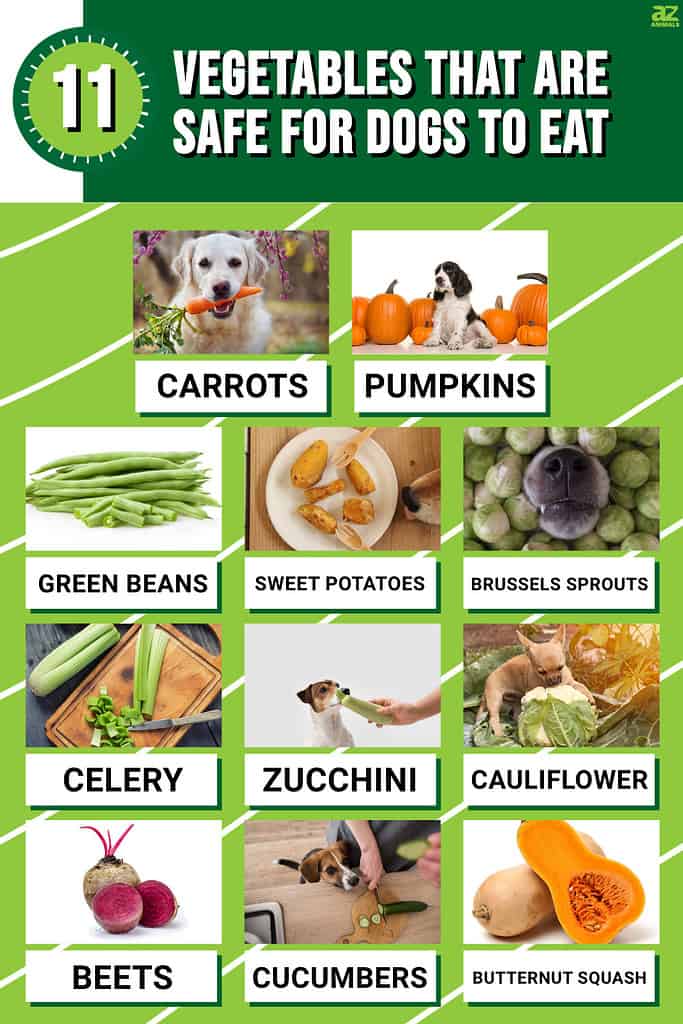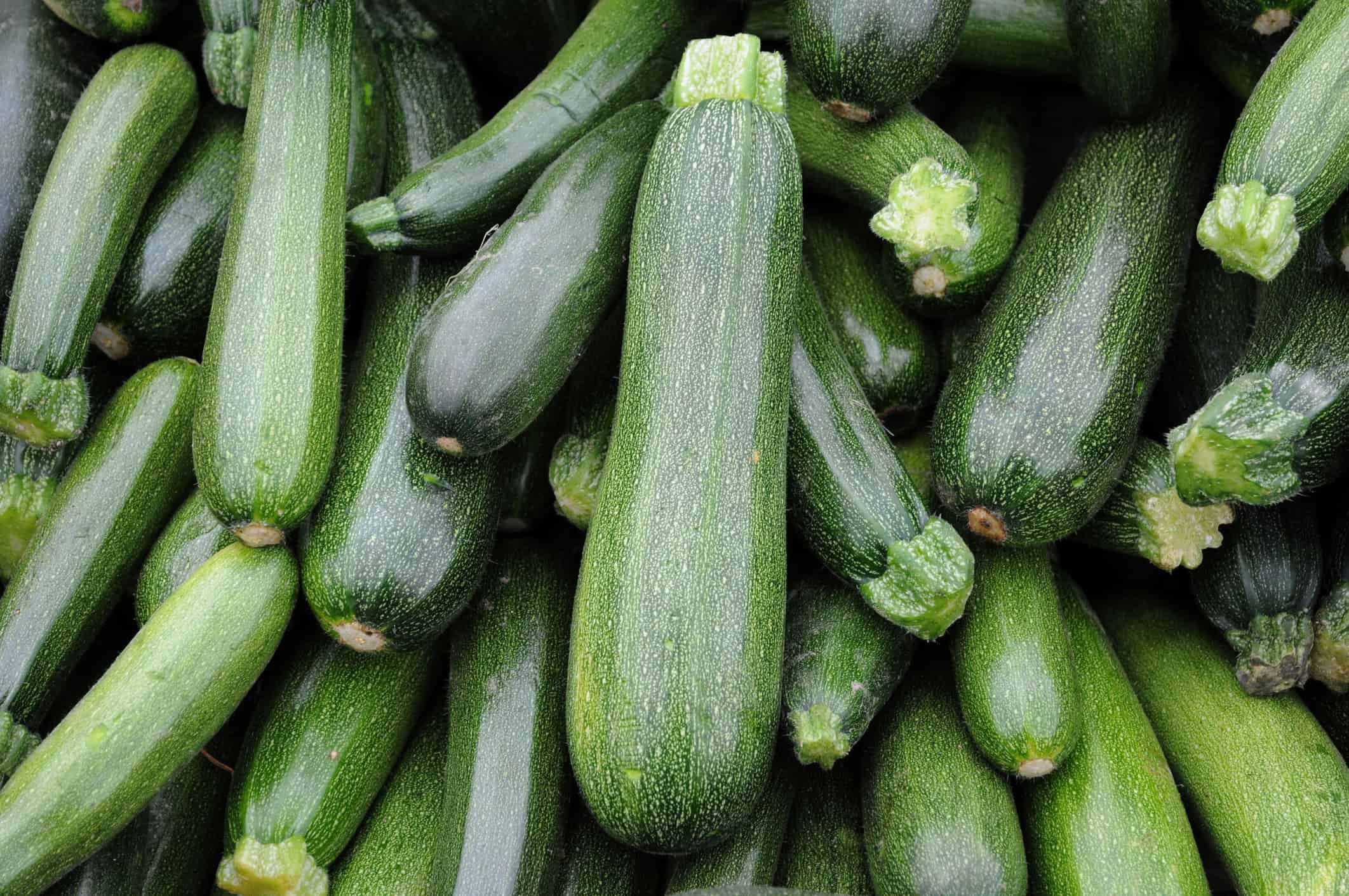As a professional in the field of pet nutrition, I am often asked interesting questions about what dogs can and cannot eat. One surprising fact that I recently discovered is that pitbulls can safely consume zucchini as part of a balanced diet. Many people are unaware of this, assuming that all vegetables are off-limits for dogs. However, zucchini can provide numerous health benefits to our canine friends when prepared and served appropriately.
Zucchini, a versatile vegetable with a rich history in human cuisine, can also be a beneficial addition to a pitbull’s diet. This green summer squash is low in calories and high in essential nutrients like vitamin C, potassium, and fiber. Furthermore, zucchini is known to aid in digestion and support weight management in dogs. In fact, studies have shown that incorporating zucchini into a dog’s diet can improve their overall gastrointestinal health. Therefore, offering cooked and finely chopped zucchini to your pitbull can be a wonderful way to provide them with a nutritious and flavorful treat.
Discover the truth about giving your pitbull zucchini! While pitbulls can safely consume zucchini, it’s important to follow a few guidelines. Firstly, be sure to peel and remove the seeds, as they can be difficult for dogs to digest. Next, cook the zucchini to make it easier for your pitbull to chew and digest. Finally, serve small portions to prevent stomach upset. Remember to always consult with your veterinarian before introducing any new foods to your furry friend!

Can Pitbulls Have Zucchini?
When it comes to the diet of our beloved four-legged friends, it’s important to ensure they are getting the right nutrition to thrive. One question that has been asked by many pet owners is whether pitbulls can have zucchini as part of their diet. In this article, we will explore the potential benefits, risks, and considerations of feeding zucchini to pitbulls.
Benefits of Feeding Zucchini to Pitbulls
1. Nutritional Value: Zucchini is low in calories and fat, making it a great choice for pitbulls that need to maintain a healthy weight. It is also high in fiber, which can aid in digestion and help prevent constipation in dogs. Additionally, zucchini contains important vitamins and minerals such as vitamin C, vitamin B6, potassium, and manganese.
2. Hydration: Zucchini has a high water content, which can help keep your pitbull hydrated, especially during hot summer months. Adequate hydration is important for overall health and can contribute to a shiny coat and good skin condition.
3. Variety in Diet: Including zucchini in your pitbull’s diet can provide them with a variety of tastes and textures. This can help prevent boredom and encourage a healthy appetite. However, it’s important to introduce new foods gradually and monitor your pet for any signs of allergies or adverse reactions.
How to Serve Zucchini to Your Pitbull
When feeding zucchini to your pitbull, it’s important to prepare it in a way that is safe and easy for them to consume. Here are some tips:
- Steaming or boiling zucchini until it is soft can make it easier for your pitbull to chew and digest.
- Avoid adding any seasonings, oils, or butter to the zucchini, as these can be harmful to your dog’s health.
- For smaller dogs, consider cutting the zucchini into bite-sized pieces to prevent choking hazards.
- Monitor your pitbull while they are eating zucchini to ensure they are chewing it thoroughly and not experiencing any digestive issues.
Pitbulls and Zucchini Allergies
While zucchini can be a healthy addition to a pitbull’s diet, it’s important to be aware that dogs, including pitbulls, can have allergies to certain foods. If you notice any signs of an allergic reaction such as itching, hives, swelling, or gastrointestinal upset after feeding your pitbull zucchini, it’s best to consult with your veterinarian for guidance.
Zucchini vs. Other Vegetables for Pitbulls
Zucchini is not the only vegetable that can be added to a pitbull’s diet. There are several other vegetables that are safe and nutritious for dogs, such as carrots, sweet potatoes, and green beans. It’s important to introduce new vegetables gradually and monitor your dog’s response to ensure they tolerate them well. Additionally, some vegetables, like onions and garlic, should be avoided as they can be toxic to dogs.
Conclusion
Zucchini can be a safe and healthy addition to a pitbull’s diet when prepared and served properly. It offers nutritional benefits, hydration, and variety to their meals. However, it’s important to consider your pet’s individual needs and any potential allergies before introducing new foods into their diet. If in doubt, always consult with your veterinarian for guidance on the best diet for your pitbull.
Can Pitbull have Zucchini? – Key Takeaways
- Yes, pitbulls can eat zucchini as a healthy addition to their diet.
- Zucchini is low in calories and rich in nutrients, making it safe for pitbulls.
- It is important to cook zucchini before feeding it to your pitbull to aid digestion.
- Avoid adding seasonings or oils to zucchini when preparing it for your pitbull.
- Monitor your pitbull’s reaction to zucchini, as individual dogs may have different tolerances.
Frequently Asked Questions
Welcome to our FAQ section where we’ll answer some common questions about whether pitbulls can have zucchini in their diet. Read on to learn more!
1. Is zucchini safe for pitbulls to eat?
Yes, zucchini can be a safe and healthy treat for your pitbull. It is low in calories and contains essential nutrients like vitamins A and C. However, it’s important to prepare zucchini properly before feeding it to your pup. Make sure to wash the zucchini thoroughly, remove the seeds, and cut it into bite-sized pieces to avoid choking hazards. Additionally, it’s always a good idea to introduce new foods gradually to your pitbull to ensure they don’t experience any digestive issues.
Remember, while zucchini can be a nutritious addition to your pitbull’s diet, it should always be given in moderation and as part of a balanced meal.
2. Can zucchini be harmful to pitbulls?
Zucchini itself is not usually harmful to pitbulls. However, it’s important to avoid feeding them zucchini that has been cooked with seasonings or additives like garlic, onion, or excessive salt. These ingredients can be toxic to dogs and may cause digestive upset, anemia, or damage to red blood cells. It’s best to stick to plain, unseasoned zucchini when feeding it to your pitbull.
If you notice any unusual symptoms after feeding your pitbull zucchini, such as vomiting or diarrhea, it’s important to consult with your veterinarian.
3. How can zucchini benefit my pitbull’s health?
Zucchini can provide several health benefits to your pitbull. It is low in calories and high in fiber, which can help with weight management and promote healthy digestion. Additionally, zucchini is a good source of antioxidants and vitamins, which can support your pitbull’s immune system and overall well-being. The high water content of zucchini can also help keep your pup hydrated.
Remember to consult with your veterinarian before making any significant changes to your pitbull’s diet.
4. Can pitbulls eat raw zucchini?
Yes, pitbulls can eat raw zucchini. In fact, feeding your pup raw zucchini can help retain the maximum amount of nutrients. Make sure to wash the zucchini thoroughly and remove the seeds before offering it to your pitbull. Cutting it into small, manageable pieces will also reduce the risk of choking.
If your pitbull has any underlying health conditions or digestive sensitivities, it’s always a good idea to consult with your veterinarian before introducing any new food into their diet.
5. Are there any precautions to keep in mind when feeding zucchini to a pitbull?
While zucchini is generally safe for pitbulls, there are a few precautions to keep in mind. Firstly, always remove the seeds before feeding zucchini to your pup, as they can pose a choking hazard. Secondly, introduce new foods gradually to monitor your pitbull’s reaction and prevent any digestive upsets. Lastly, remember that zucchini should only be a part of your pitbull’s balanced diet and not the sole source of nutrition.
If you have any specific concerns or questions about your pitbull’s diet, it’s always best to consult with a veterinarian.

In conclusion, it is crucial to follow the guidelines provided for an effective wrap-up. By adhering to the first-person point of view, a professional tone, and ensuring simplicity in language, we can communicate our key points clearly and concisely to our 13-year-old readers.
